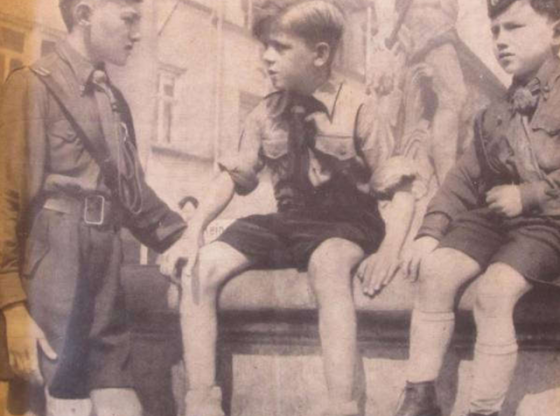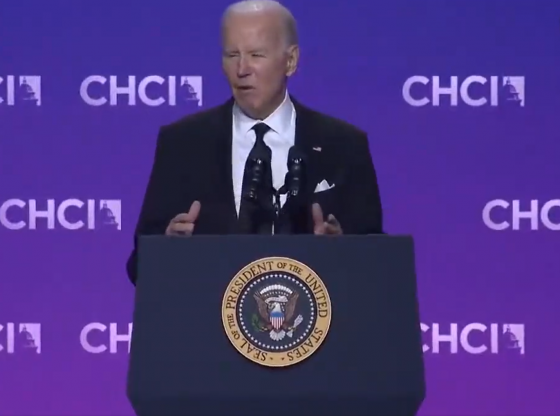Economic literacy is sorely lacking in our country. When you read these lines, especially on a political news and opinion site, you might be thinking I’m going to be ranting and raving about how much money our government is spending, and how much of the next generation’s money our government is spending by the accumulation of debt we now have ($28.5 trillion and counting).
You might also think I’m about to highlight and complain about the onset of inflation, which we seem to be experiencing to some degree with the rapid rise in prices of all sorts of products and services. I could take this article in that direction, but that’s only going to highlight some of the effects of economic literacy – and it would do so on a scale not too many would understand. After all, it’s hard to get your head around what a trillion dollars is (much less $28 trillion).
Instead, what I want to highlight is what the lack of economic literacy does to an individual human being. Over the past few months, I have been visiting a prison in South Florida where I teach and instruct inmates through an economics course. It is part of a curriculum that some of them have the opportunity to take part in while serving time for their crimes. I have had about 25 students in my class and I have been incredibly impressed with their eagerness to learn, their knowledge on many subjects, and their intelligence. However, when it comes to economics, some are more knowledgeable than others. And yet all have seemed to gain great new insights.
One of the inmates, I’ll call him Al, told me this: he grew up in some very poor neighborhoods. At the age of 12, he was out on his own and had to fend for himself. He did what he needed to do to generate a substantial amount of income. He did so by illegal means, on the streets, selling his own “products.” Later on, he earned a paycheck the right way. He was so proud of himself. He was sitting there looking at his $300 paycheck.
But Al told me that his real downfall, however, was that he was never taught to understand the true value of things. “When I was young I did not value money and that’s why I was so reckless once a dollar touched my hand. It was being spent on foolish things so fast to the point that I was living beyond my means.”
I had asked each of the students to describe how they (can) create value. He said, “I would start by knowing how that one dollar is created. How many trees are cut down? How much work is put in?” He added, “The answer is simple. Your average day people like you and me are the centerpieces of it all. There is not just one single person involved but hundreds. The economy moves by the actions of us coming together as a collective unit as we each provide a service in which we each profit. We are the product.”
He went on to describe that “whether you are working for a company or building your own business, the key is innovation; creating a service or product that in retrospect creates immense value to others regardless of the costs.” He added that “you’re not just selling a product, you’re selling yourself.”
“Nothing is without a price,” he said. He is currently learning that from inside a prison cell. He is paying the price of the cost he put on others who he committed crimes against.
“There are many decisions we face every day,” Al told me. “Time is valuable and every decision does not come without a cost, from the clothes we choose to wear, to the food that we eat, or the place we call home. I never considered what being productive and proactive meant, yet they both bring stability to our every day lives to ensure that businesses are open and services are being provided.”
I was really floored hearing this from someone serving time in prison. As an instructor of his economics course, it is rewarding to hear one of my students really “get” economics. But after listening to all that Al said to me, there was something that resonated with me, something I just can’t get out of my mind. It took this man a lot of hard lessons to learn before he “got” this. He didn’t learn it in school. He had no parents who instilled it in him. His family, his neighbors, his culture, his country – we all failed him. Now he is learning. And it didn’t just take him getting locked up. It also took him opening up a book, Common Sense Economics, by James Gwartney, and engaging with an entire class of peers to discuss these topics.
On day one, I told all the students in my class: “At the end of the day, economics is really the study of interactions by humans and between humans. Throughout those interactions, hundreds, if not thousands of decisions, are made by each one of us every day. And sometimes we make bad decisions. My guess is that you’re probably in here because you made a bad decision. And I’m here to tell you that everyone else outside this prison, myself included, is only one bad decision away from being in here. Whether our decisions are legal, illegal, or simply financially reckless, it is important to learn and understand economics so that all of our decisions can be better and more productive.”
Teaching Al economics has opened his eyes and helped him to better relate to the experiences and troubled past he has had. He is now learning that everything has a cost and that we live in a country where property rights are respected under the rule of law, and that when you violate other people’s life, liberty, or property, you must pay the cost in time and treasure. He also clearly has learned about work ethic and how we all must do our part to be productive members in our communities. There is no such thing as a free lunch.
But this made me think. Why has this man had to waste so many years on the streets? Why did he have to waste his paychecks on reckless spending? Why is he now paying the price of years of his life behind bars? Why can we not be teaching common sense economics, coupled with a respect for our rule of law and the protection of private priority rights, as well as personal fiscal responsibility, at a much earlier age? It would not have only prevented many of the problems Al has had to face, but it would release a burden on the taxpayer. After all, when people like him commit crimes, it does damage to the victim, it involves more resources by law enforcement and the judicial system, and we taxpayers also have to pay for his new housing, food, and medical arrangements. Why not just do a better job teaching common sense economics, including financial literacy, to all young people at a much earlier age?
When someone truly understands economics, a light bulb goes off. It’s as if they’ve seen the world as they’ve never seen it before. In addition, a culture that is more attuned to economics will probably not allow its leaders to get away with reckless spending of taxpayer money and putting our nation into so much debt.
As Thomas Sowell once said, “The first lesson of economics is scarcity: there is never enough of anything to fully satisfy all those who want it. The first lesson of politics is to disregard the first lesson of economics.”
Thomas Sowell may be on to something and his insight makes me think: maybe there’s another reason so many of our nation’s “leaders” have avoided teaching we the people to learn a little bit more about economics. Maybe some of them are afraid it may wake us up to the reckless – and perhaps criminal – activity they are up to. It’s well past time we reach as many young people as we can with some lessons in economics before they too have to learn the lesson the hard way and pay a steeper price for a course that should simply be required for every grade school student.
The opinions expressed by columnists are their own and do not necessarily represent the views of AmericanActionNews.com
















You are a good man Ginga Din!
This topic has been retold more times than South Pacific. Why this professor is imparting his knowledge on economics as if he’s revealed something ‘hidden’, I don’t know. Money people are like sports fanatics. They know every detail, and they can cite statistics with practiced ease. What Americans need to know is that our Federal Reserve Act was forced upon President Wilson (Who subsequently expressed his deep regret for putting American necks in an economic noose.) by coercion. It doesn’t take much analysis to determine that such tactics would not entail a beneficial agenda.
Not really only the demorats way!!
I took a basic economics course when in high school in SC in the mid 60s. It was very informative, and it helped me considerably over the years. It was the first class offered in economics at that high school, and there was only one class taught that year. I don’t know if the course was continued in the following years or if it was expanded.
The American citizens need to be educated about the Federal Reserve Act of 1913.
President James A. Garfield said, “Whoever controls the volume of money in any country is absolute master of all industry and commerce.” The elites understand this. The American people do not.
The Rothschild family owns the Federal Reserve, hasn’t allowed either party to obey the Constitution for decades now. Banks are Rothschild franchises.
The Rothschilds have conquered the world more thoroughly, more cunningly, and much more lasting than all the Caesars before.
Their plan is to create a system of financial and political control of every nation and economy of the world.
Excellent article le! Important lessons that are not clearly explained soon enough in svhool! Should be taught to Education majors in college first, then reinforced constantly until graduation! So important in
daily life of students. That would be a great teacher! The book a must read!